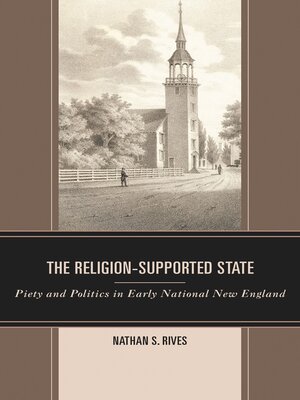The Religion-Supported State
ebook ∣ Piety and Politics in Early National New England · Religion in American History
By Nathan S. Rives

Sign up to save your library
With an OverDrive account, you can save your favorite libraries for at-a-glance information about availability. Find out more about OverDrive accounts.
Find this title in Libby, the library reading app by OverDrive.



Search for a digital library with this title
Title found at these libraries:
| Library Name | Distance |
|---|---|
| Loading... |
Between 1776 and 1850, the people, politicians, and clergy of New England transformed the relationship between church and state. They did not simply replace their religious establishments with voluntary churches and organizations. Instead, as they collided over disestablishment, Sunday laws, and antislavery, they built the foundation of what the author describes as a religion-supported state. Religious tolerance and pluralism coexisted in the religion-supported state with religious anxiety and controversy. Questions of religious liberty were shaped by public debates among evangelicals, Unitarians, Universalists, deists, and others about the moral implications of religious truth and error. The author traces the shifting, situational political alliances they constructed to protect the moral core of their competing truths. New England's religion-supported state still resonates in the United States in the twenty-first century.







